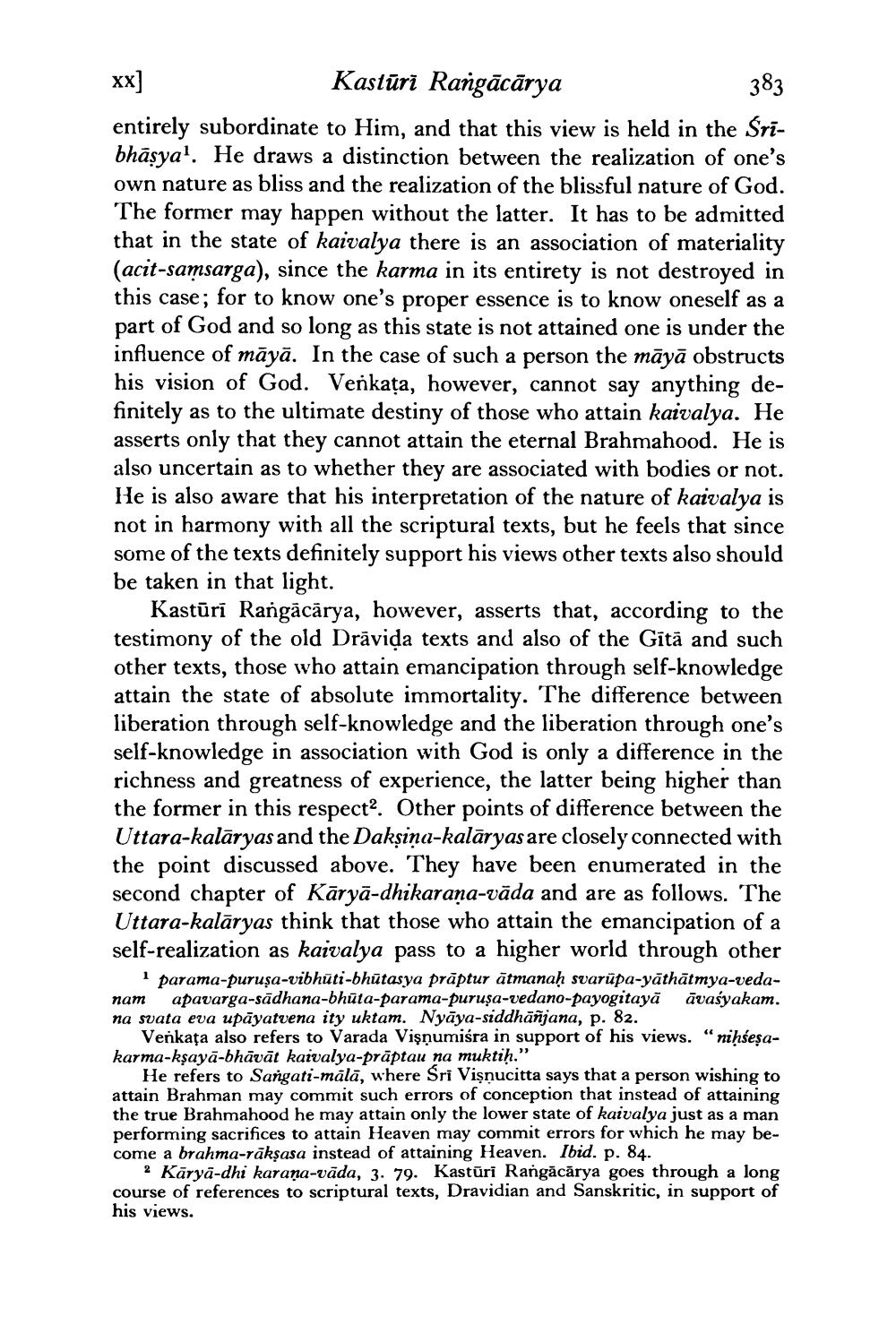________________
xx]
Kasturi Rangācārya
383
entirely subordinate to Him, and that this view is held in the Śrībhāṣya1. He draws a distinction between the realization of one's own nature as bliss and the realization of the blissful nature of God. The former may happen without the latter. It has to be admitted that in the state of kaivalya there is an association of materiality (acit-samsarga), since the karma in its entirety is not destroyed in this case; for to know one's proper essence is to know oneself as a part of God and so long as this state is not attained one is under the influence of māyā. In the case of such a person the māyā obstructs his vision of God. Venkata, however, cannot say anything definitely as to the ultimate destiny of those who attain kaivalya. He asserts only that they cannot attain the eternal Brahmahood. He is also uncertain as to whether they are associated with bodies or not. He is also aware that his interpretation of the nature of kaivalya is not in harmony with all the scriptural texts, but he feels that since some of the texts definitely support his views other texts also should be taken in that light.
Kastūri Rangācārya, however, asserts that, according to the testimony of the old Dravida texts and also of the Gita and such other texts, those who attain emancipation through self-knowledge attain the state of absolute immortality. The difference between liberation through self-knowledge and the liberation through one's self-knowledge in association with God is only a difference in the richness and greatness of experience, the latter being higher than the former in this respect2. Other points of difference between the Uttara-kalāryas and the Dakṣiņa-kalaryas are closely connected with the point discussed above. They have been enumerated in the second chapter of Kāryā-dhikaraṇa-vāda and are as follows. The Uttara-kalāryas think that those who attain the emancipation of a self-realization as kaivalya pass to a higher world through other
1 parama-purușa-vibhuti-bhūtasya praptur ātmanaḥ svarüpa-yāthātmya-vedaapavarga-sadhana-bhūta-parama-puruşa-vedano-payogitaya
nam
āvaśyakam.
na svata eva upayatvena ity uktam. Nyāya-siddhāñjana, p. 82.
Venkata also refers to Varada Vişņumiśra in support of his views. "niḥseșakarma-kṣaya-bhāvāt kaivalya-prāptau na muktiḥ.'
He refers to Sangati-mala, where Śri Visnucitta says that a person wishing to attain Brahman may commit such errors of conception that instead of attaining the true Brahmahood he may attain only the lower state of kaivalya just as a man performing sacrifices to attain Heaven may commit errors for which he may become a brahma-rākṣasa instead of attaining Heaven. Ibid. p. 84.
2 Karya-dhi karaṇa-vāda, 3. 79. Kastūri Rangācārya goes through a long course of references to scriptural texts, Dravidian and Sanskritic, in support of his views.




